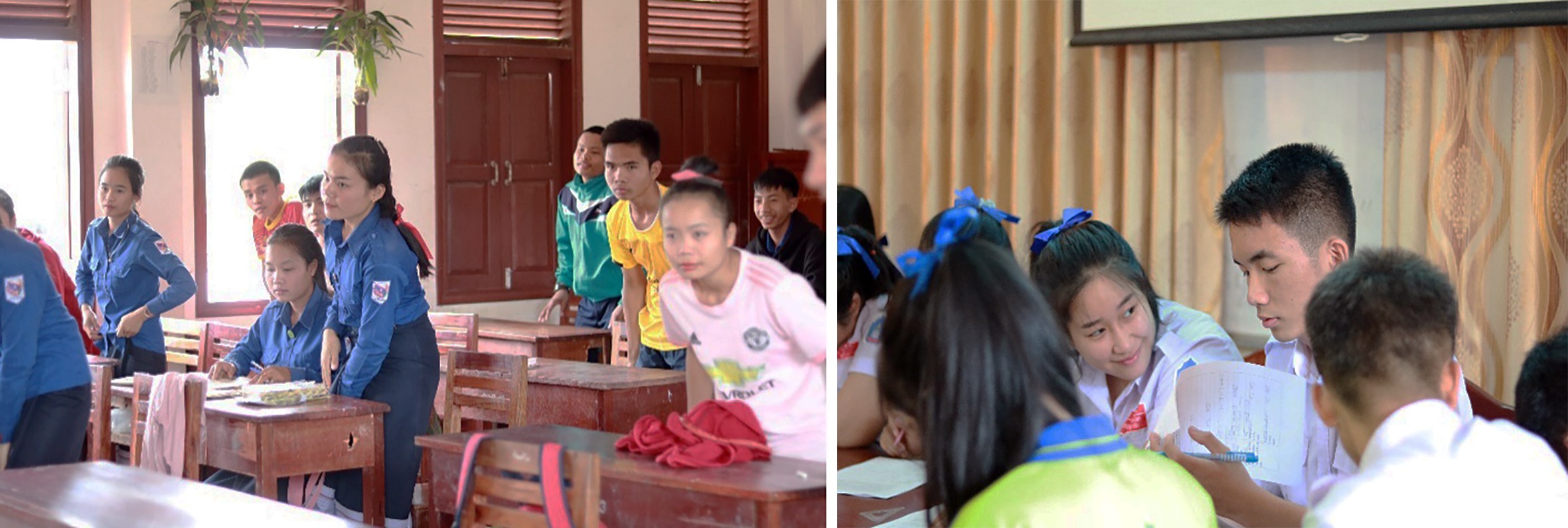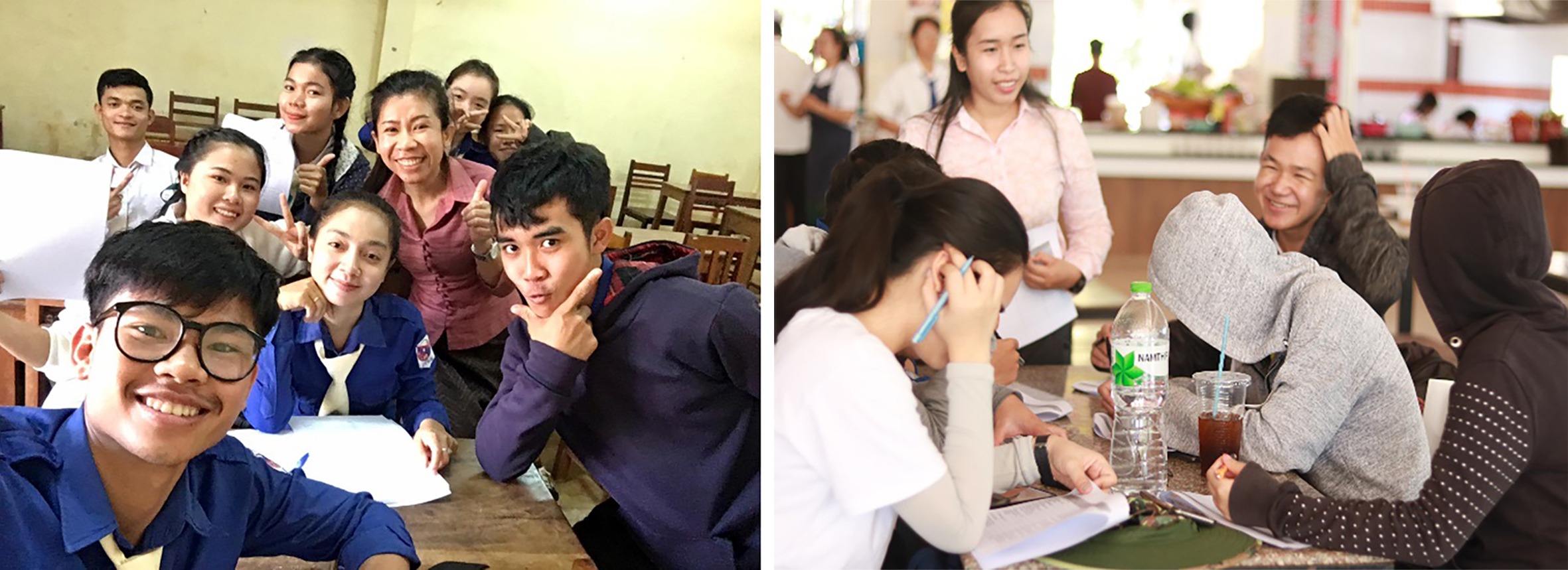

Passion for agriculture found in Laos NextGen
May 26, 2020
As part of our concerted efforts to support and encourage the next generation of Australians in study, careers and volunteering in international agricultural research, the Crawford Fund State Committees proudly support our Student Awards.
Our 2020 Student Awards in ACT, NSW and QLD have been extended due to the disruption to the university year caused by COVID-19 so check out the backgrounder and apply online before Monday 2 November 2020.
These awards allow university students from around Australia to include an international component to their studies, to travel to their host countries to research and explore their chosen topic areas and gain international agricultural research experience and expertise.
We now proudly present to you reports from our 2019 cohort as they complete their travels and research. A sample of reports from each State include Jori Bremer from the University of New England; Nadeem Akmal from the University of Canberra; Daniel Waterhouse from Murdoch University; Cassandra Davitt from the University of Melbourne; Jane Ray from the University of Queensland; and Anna Mackintosh from the University of Tasmania.
Manithaythip Thephavanh, a PhD student at the University of Adelaide, School of Agriculture, Food and Wine travelled to Laos as part of her research investigating the factors which influence the intention of Lao youth to engage in small and medium scale agricultural entrepreneurship as a career, and the rural opportunities available to them. Not only was Manithaythip the recipient of our SA Committee’s Student Award in 2019, she is also the recipient of ACIAR’s John Allwright Fellowship.
Manithaythip’s project data collection was conducted in Vientiane, the capital, and in the southern province of Champasak. She applied a combination of social sciences techniques including youth career perception and intention surveys, semi-structure interviews, focus group discussions, and key informants interviews.
“The Crawford Fund Student Award allowed me to greatly increase the scope and quality of my research, by allowing me to include a second province in my investigation, adding a new dimension to the analysis and greatly increasing the number of participants to over six hundred,” said Manithaythip.
“To have Champasak province as a second site for my research allowed me to explore a new environment, capture different perceptions of high school and university students and young farmers in the south, and meet with many interesting people who shared me a lot of useful information and insights for my personal development and research,” she added.
“The data are currently being processed and it is clear that these improvements will greatly increase the validity of the findings. It has also been a valuable learning experience for me, as my research put me in contact with many career decision-makers, young farmer-entrepreneurs, local experts and Australian researchers for international agricultural development,” she said.
“This funding has helped me to better achieve my PhD goal of identifying the drivers for youth to engage in agriculture, which is poorly understood,” she said.
The Lao People’s Democratic Republic (Laos) is a nation whose population is both highly rural and also the youngest population in Asia, with a median age of 21.9. Agriculture is a significant sector upon which approximately two-thirds of Laos’ rural population are highly reliant for subsistence and income. Even amongst urban residents, nearly half of households engage in some form of agriculture.
Although approximately 75% of young people in Laos work in the agricultural sector, only half do so with market interactions, and with fewer off-farm opportunities compared to its regional neighbours, there is a danger of rural youth being left behind as Laos modernizes, unless they can transition to more market-oriented agricultural production explained Manithaythip.
“Accordingly, my PhD research project is investigating the factors which influence the intention of Lao youth to engage in agricultural entrepreneurship as a career, and the rural opportunities that exist for them,” she said.

With the help of the Lao Farmer Network, the biggest network of farmers groups in Laos (representing more than 4,000 farmers nationally), 75 individual young farmers-entrepreneurs were contacted for semi-structured interviews and three focus group discussions were conducted with other young farmers-entrepreneurs.
“Spending time with and interviewing 75 young farmers-entrepreneurs in the central and southern Laos has reshaped my view about young people and agriculture,” she said.

“The impression I formed when talking to young farmer entrepreneurs was that they are not forced to engage in this agricultural entrepreneurship as a career because of a lack of options; they are doing it because they are passionate about it,” said Manithaythip.
“During the interview, when I asked young farmers-entrepreneurs what motivates them to select their career, the most common response was that they “love it” or have a passion for it; most of the time when I ask do they think of changing their career, they said no. This contradicted my initial expectation that young people may work in agriculture due to a lack of other options or as a reasoned response to other environmental factors or pressures, rather than a result of their attitude,” she said.
“Another surprising insight that I gained from conducting youth career perception and intention survey with high school and university students is that most of them have a positive attitude toward agricultural entrepreneurship as a career,” she said.

Further interviews were held with policy decision-makers, senior researchers and development practitioners from government agencies, commerce and industry, universities and the the private sector.
“Now that I have returned from Laos, I will apply qualitative research software (Nvivo) to identify the key psychological and environmental themes around the opportunities that may or may not exist, and the perceptions surrounding them,” she said.
“Being present in southern Laos for the Crawford Fund-supported activities also provided me with a worthwhile opportunity for me to get involved with a visiting Australian researcher, Dr Davina Boyd, who is working on an ACIAR project. She is a career social scientist and being able to join her on her research and contribute to it has given me valuable experience that I was able to apply in my own research,” said Manithaythip.
“Conducting fieldwork in Laos for this research has resulted in me having a positive experience with many like-minded people, and building up several new networks both inside and outside of Australia,” she said.
“I am confident that the activities and partnerships that the Crawford Fund enabled during my trip to Laos will lead to high-quality research from The University of Adelaide that will strengthen the institution’s output and reputation for agricultural research for development,” concluded Manithaythip.
You can also read a little more about Manithaythip’s experience here.




 0
0